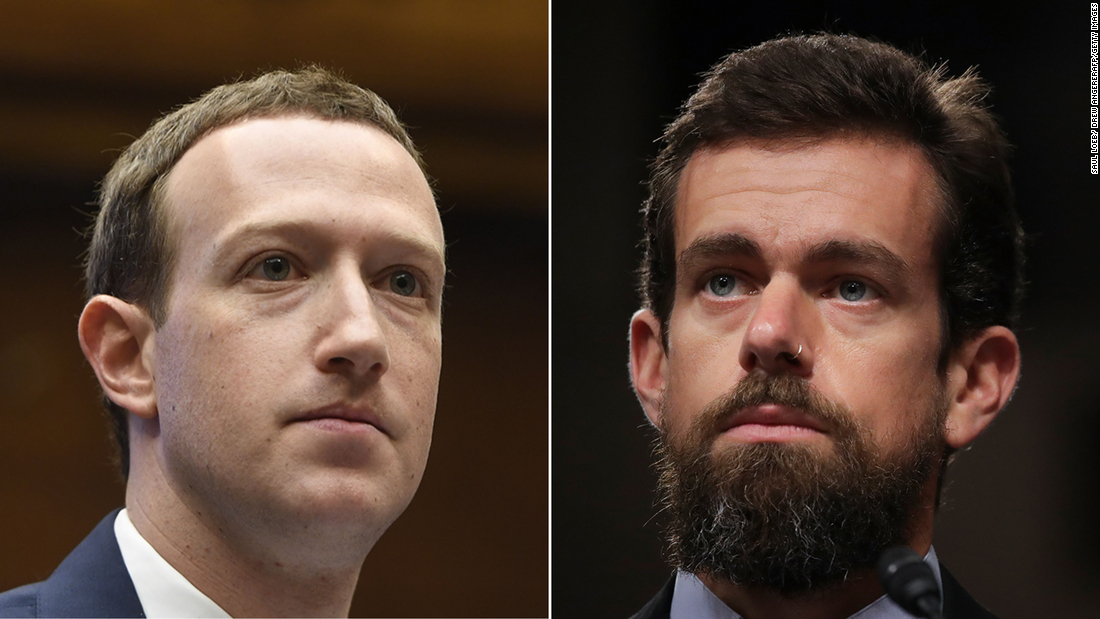Facebook suspends Trump's account until 2023 1:07
(CNN Business) -
Former President Donald Trump filed class action lawsuits Wednesday against Facebook and its CEO, Mark Zuckerberg, and Twitter and its CEO, Jack Dorsey, as well as YouTube and the CEO of its parent company, Sundar Pichai, in a desperate move after being removed from their platforms.
Courts often dismiss similar lawsuits, and these too are likely doomed from the start.
The announcement of the lawsuits comes after the companies removed Trump's access to their platforms following the Jan.6 riots on Capitol Hill.
Twitter vetoed Trump entirely, and he is currently suspended from Facebook for at least two years.
YouTube also suspended Trump in January, but said in March that his account will be reinstated when the company is sure the risk of violence has decreased.
Trump sues Facebook, Twitter and YouTube
Twitter, Facebook and Google, which owns YouTube, declined to comment.
Tech companies have consistently rejected claims that their platforms discriminate based on partisan ideology.
Independent studies have not corroborated such allegations, and several have found that partisan voices, particularly from the right, are among the most participatory on the platforms.
Trump's demands continue a trend that began during his presidency: hitting companies that he perceives as a threat to his political brand.
Last spring, while still in office, Trump signed an executive order to "prevent online censorship" and try to expand the legal liability of tech companies.
But tech companies are legally allowed to run their platforms however they see fit, and the courts have thrown out a number of similar lawsuits.
Facebook, Twitter and YouTube cited the potential for future incitement to violence or risks to public safety following the Capitol riots when announcing their decisions to remove Trump accounts.
advertising
If Trump hadn't told him to go to Capitol Hill, he wouldn't have gone, says Jan.6 protester
Trump said during a press conference Wednesday that he is asking a Florida court "to order an immediate end to the illegal and shameful censorship of social media companies of the American people."
"We are going to hold big tech to account," he said.
Pressure to take legal action against tech platforms over bias allegations has spread across the country.
In May, Florida passed a law allowing politicians who have been suspended or banned from social media to sue those companies.
Florida enacts law against suspension in social networks 0:59
But this effort has crashed against the reality of current law, and against the Constitution.
Last week, a federal judge blocked the Florida law from taking effect, saying the government's attempts to force social media companies to host political speeches violate the First Amendment.
(Florida Governor Ron DeSantis has promised to appeal.)
The judge's ruling also said Florida law went against a federal law that Trump had tried to weaken with his decree: section 230 of the Communications Act of 1934. Section 230 provides legal immunity to websites that they moderate the content generated by users, and it has been used by technological platforms to tackle many lawsuits in the bud.
Numerous bills have been proposed in Congress to reduce the scope of Section 230, including by some Democrats who believe that tech companies are not doing enough to curb hate speech and online harassment.
Do social media feed disinformation from hate groups?
But much of the push to change Section 230 has come from Republicans, upset at the way social media companies have applied its rules when conservatives have broken them.
Trump, in his decree, accused technology companies of "participating in the selective censorship that is damaging our national discourse," and lobbied for the Federal Communications Commission (FCC) to "clarify" Section 230. .
Legal experts and FCC officials themselves questioned the agency's authority to do so, citing the same First Amendment issues that blocked Florida law.
President Joe Biden later struck down Trump's decree.
Now, having failed to turn the machinery of the US government against the tech industry, Trump is trying to reach it through the courts.
But with Section 230 still on the books, it's unclear how it could be successful.
Michael Warren and Ashley Semler contributed reporting.
Facebook twitter

